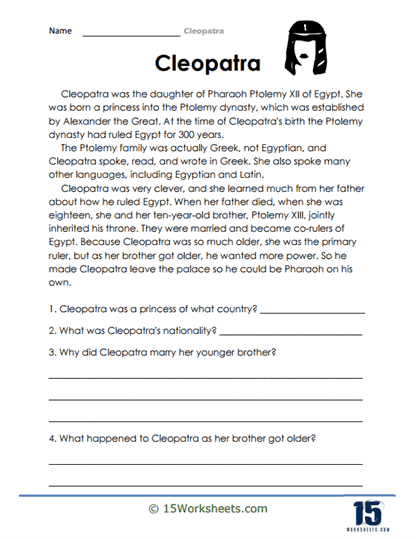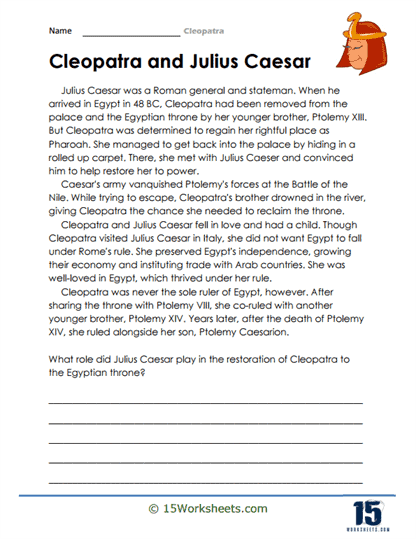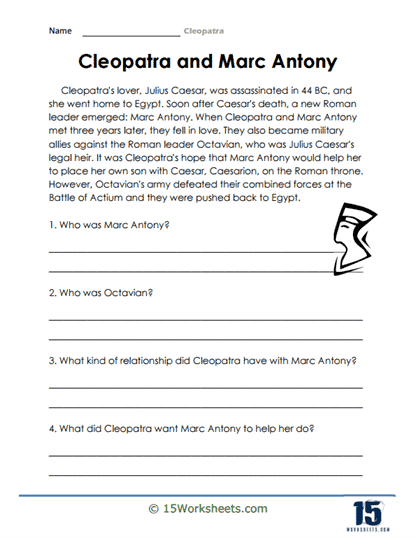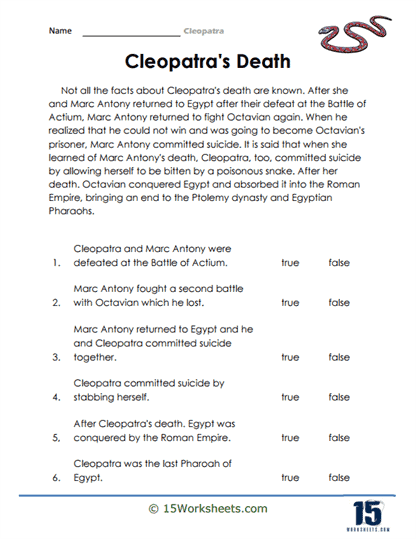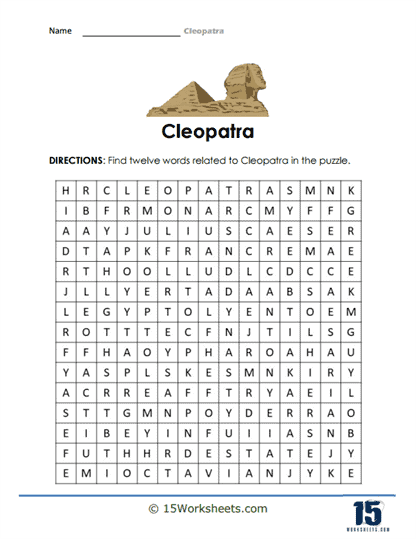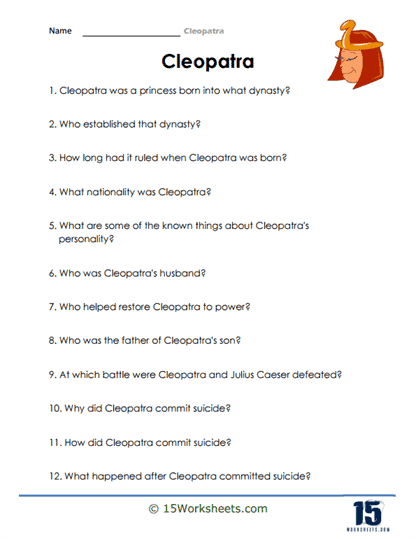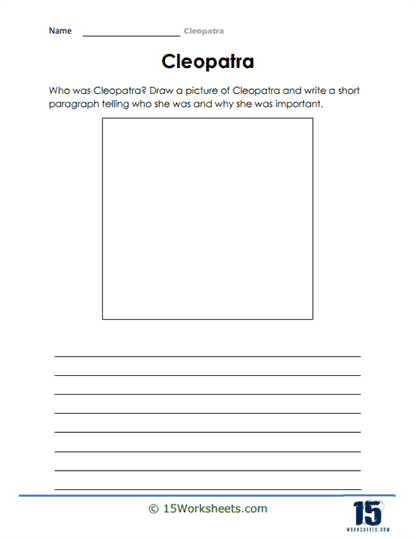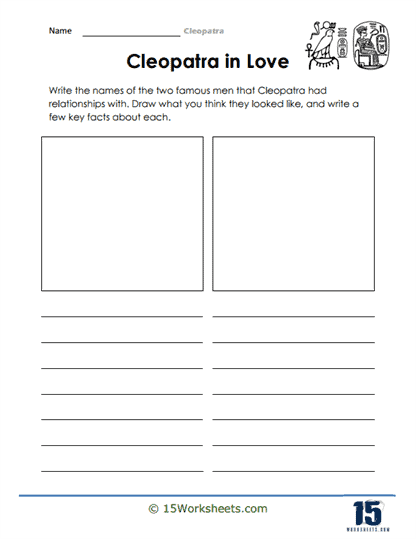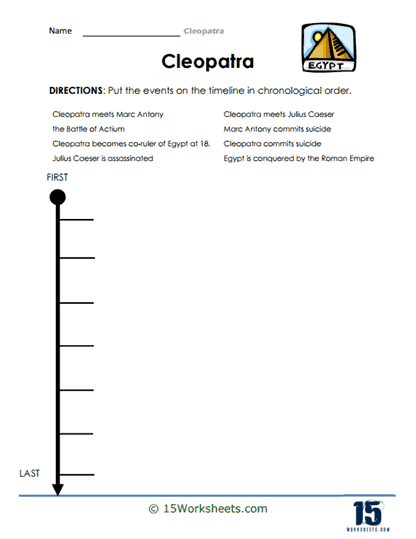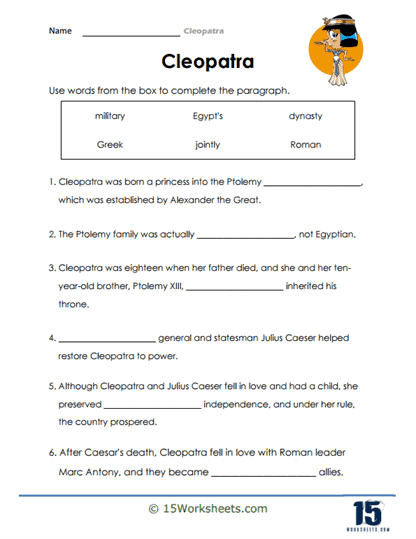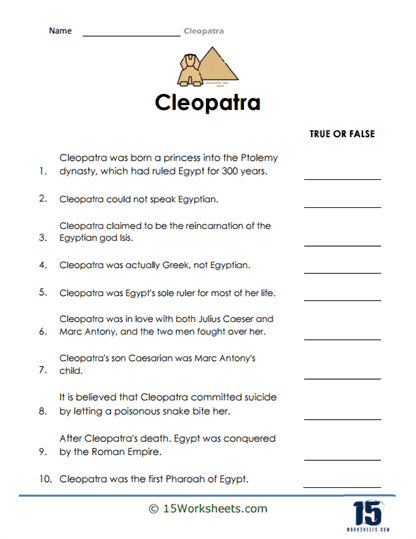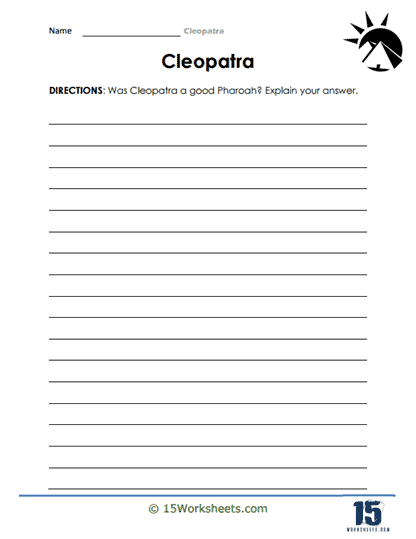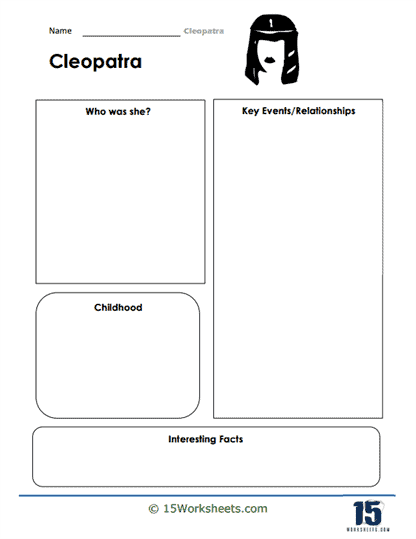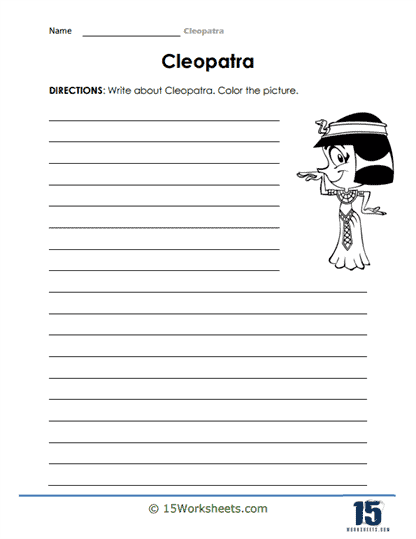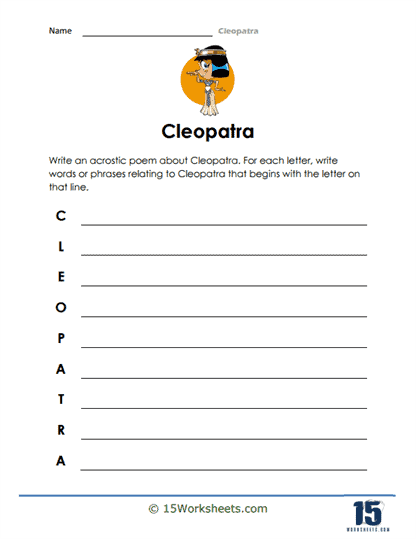Cleopatra Worksheets
All About These 15 Worksheets
Students learn all about the captivating life and reign of Cleopatra with this comprehensive series of 15 worksheets. This collection is designed to introduce students to the remarkable historical figure Cleopatra, the last active ruler of the Ptolemaic Kingdom of Egypt. Through various activities and thought-provoking exercises, students will gain a deeper understanding of Cleopatra’s achievements, her influence on ancient Egypt, and her enduring legacy as a powerful female leader. Through these worksheets, students will:
- Explore Cleopatra’s background, her ancestry as a member of the Ptolemaic dynasty, and the political and cultural context of ancient Egypt;
- Examine Cleopatra’s efforts to strengthen Egypt’s economy, expand its territories, and maintain political alliances, highlighting her role as a capable and influential leader;
- Learn about her alliances and romances with Julius Caesar and Mark Antony, the political maneuverings of the time, and the ultimate downfall of her reign;
- Put the key events in chronological order;
- Synthesize all that they’ve learned about Cleopatra by presenting it through an infographic;
- And develop their creativity by drawing pictures and creating their own acrostic poem about Cleopatra.
Accomplishing this series of worksheets will transport students back to the fascinating world of ancient Egypt, allowing them to unravel the mysteries surrounding Cleopatra’s life and reign. Through a wide range of activities, students will develop critical thinking skills, historical empathy, and a deeper appreciation for the contributions of influential historical figures. Overall, this series aims to inspire students to explore the complexities of Cleopatra’s reign, her leadership qualities, and the legacy she left behind as a prominent female ruler in the ancient world.
Who Was Cleopatra?
Cleopatra VII Philopator (69 BC – 30 BC) was the last active ruler of the Ptolemaic Kingdom of Egypt, a powerful Hellenistic state in northeastern Africa. She was a member of the Ptolemaic dynasty, a Greek family of Macedonian origin that ruled Egypt after the death of Alexander the Great. Cleopatra was an intelligent and charismatic leader who was skilled in politics, diplomacy, and languages, and her reign had a significant impact on Egypt and the wider Mediterranean world. Some of her most notable contributions to history include:
Political Alliances
Cleopatra’s strategic alliances with powerful Roman leaders, such as Julius Caesar and Mark Antony, helped her maintain her throne and protect Egypt’s interests. Her relationship with Julius Caesar led to the birth of a son, Caesarion, and the defeat of her brother and co-ruler, Ptolemy XIII, securing her position as Egypt’s ruler. Later, her alliance with Mark Antony further solidified her power and influence in the region, and the couple had three children together.
Economic Reforms
Cleopatra implemented economic reforms to stabilize and strengthen the Egyptian economy, which was struggling under the weight of debt and famine. She focused on boosting agricultural production, promoting trade, and improving tax collection. These efforts helped restore Egypt’s prosperity and increase its influence in the Mediterranean world.
Cultural Revival
Cleopatra sought to revive Egypt’s cultural heritage by patronizing arts, literature, and science. She was a learned woman who spoke several languages, including Egyptian, which made her stand out among her Greek-speaking predecessors. Cleopatra embraced Egyptian customs and religious practices, and she portrayed herself as the goddess Isis to solidify her connection with the Egyptian people.
Navigation and Exploration
During Cleopatra’s reign, Egypt sponsored an expedition led by the Greco-Roman geographer and explorer Strabo, which aimed to explore the Red Sea, Arabian Sea, and Indian Ocean. This expedition contributed to the understanding of geography, trade routes, and the cultures of the wider region.
Cleopatra’s significance in history extends beyond her reign, as her life and death marked the end of the Ptolemaic Kingdom and the beginning of Roman rule in Egypt. After her forces, allied with those of Mark Antony, were defeated by Octavian (later known as Augustus) at the Battle of Actium in 31 BC, Cleopatra committed suicide to avoid capture. Egypt then became a province of the Roman Empire, and its rich resources were used to fuel Rome’s growth and development. Cleopatra’s life and legacy continue to captivate the modern imagination, and she remains a symbol of power, beauty, and intrigue.

